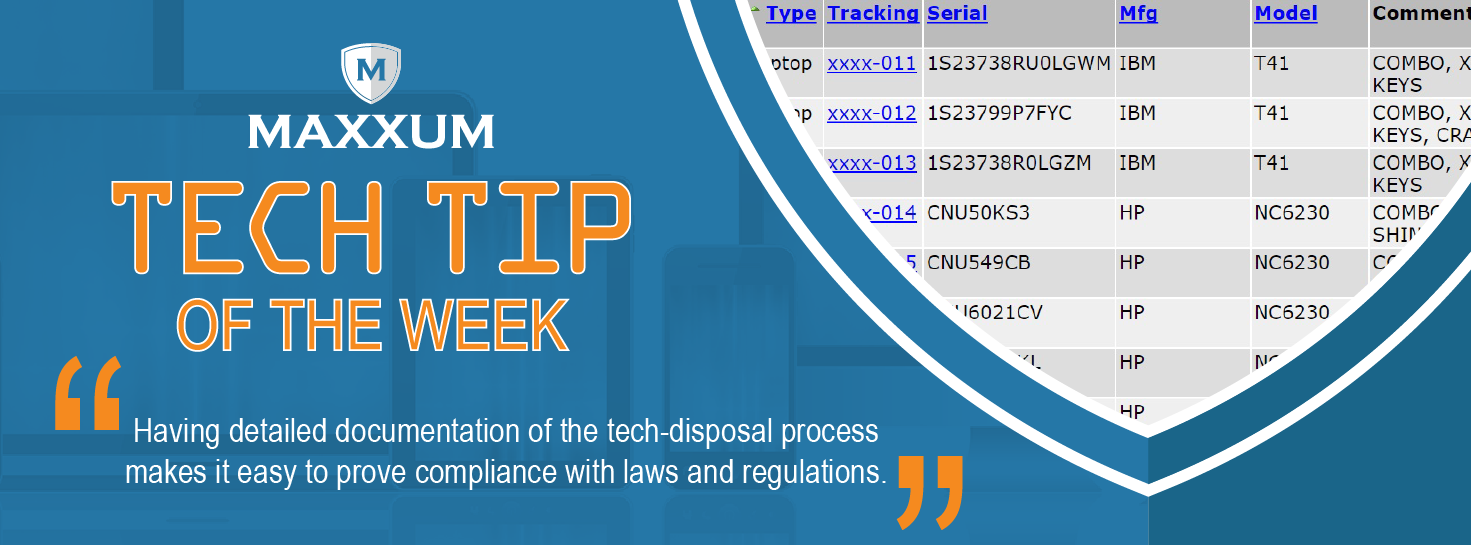5 Best Practices for Technology Asset Disposal
October 1, 2015If you’re a little wary about the best way to manage technology asset disposal these days, you’re not alone. While security breaches have been featured in some of the biggest headlines over the last few years, the number of companies that have been hit with criminal and civil penalties, as well as executive fines and even incarceration, is alarming.
As technology continues to advance at a high rate, organizations are now experiencing a more involved process when disposing of their technology equipment. Moreover, smart organizations are finding qualified, trusted, Technology Asset Disposal companies to manage this complicated process.
Technology Asset Disposal – the Right Way
Here are five best practices any Technology Asset Disposal company should provide for their clients:
1. Data Destruction
You might be finished with your storage drive, but that doesn’t mean that the data is gone. You may be vulnerable to legal ramifications if you don’t dispose of your data and drive assets properly. If you’re sensitive data leaks, you’ll have to answer to the law and your customers. Demand certified drive sanitation or destruction.
2. Equipment Remarketing
Technology assets (such as PCs, laptops, and servers) that are less than three to four years old have resale value. A disposal company should work to recoup that value on your behalf through a variety of remarketing channels. Re-selling, selling to employees or donating to schools or foundations are all ways to get value back from your old technology.
3. Equipment Recycling
A Certificate of Electronic Equipment Destruction (CEED) should be provided for all recycled technology assets. Having documentation that demonstrates or certifies that your company took the proper steps can save you from penalties down the line.
4. Compliance Reporting
Detailed documentation makes it easy to prove compliance with all laws and regulations. With so many government agencies tasked with oversights (HIPPA, PCI, SOX, FCC, FDA, etc.), an asset disposal company needs to provide a detailed audit trail to prove compliance.
5. Policy and Program Development
If your company is not sure how to start developing a compliant technology asset disposal program, you are not alone. A strong and reliable technology asset disposal company should be your guide through the process.
Posted in IT Asset Disposal /Risk Mitigation /



